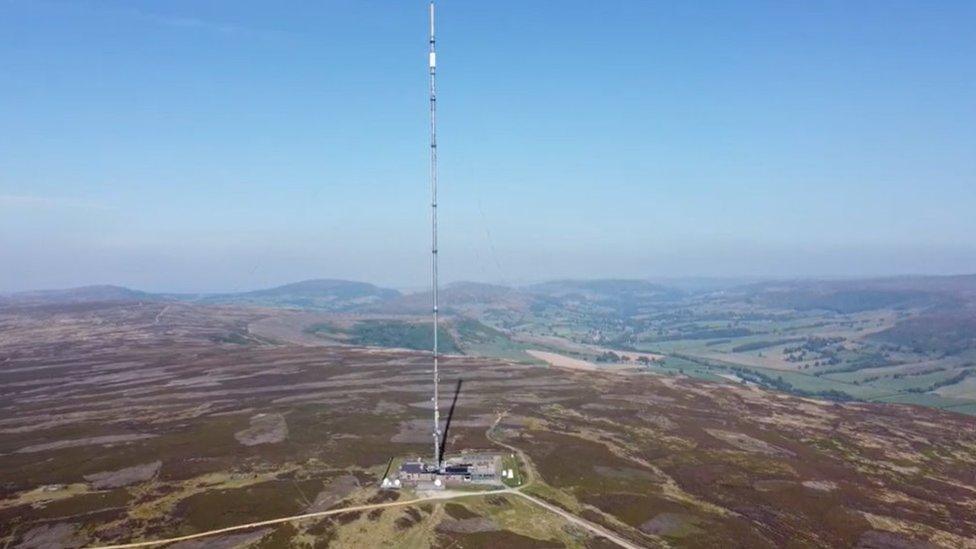Bilsdale mast: Better planning needed before fire - Ofcom
- Published
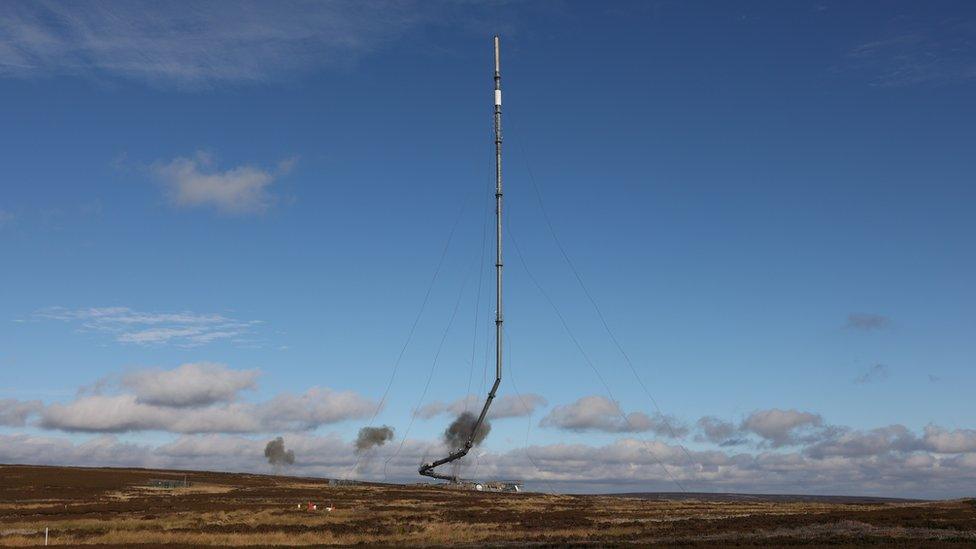
The original Bilsdale mast was damaged by fire and felled in a controlled explosion in October 2021
Better planning could have seen a temporary TV and radio transmitter up and running sooner, a watchdog said.
Ofcom said it was "very concerned" when the Bilsdale transmitter caught fire on 10 August, leaving more than 600,000 homes across Teesside, County Durham and North Yorkshire without services.
It has now urged all broadcast firms to improve their contingency plans.
Operator Arqiva said the suggestions were in line with work it had been carrying out since the fire.
It said the fire - at the mast on the North York Moors - was down to water damage to third-party equipment but Ofcom said the response was not good enough.
The fire-hit mast was demolished and a temporary transmitter was erected in September 2021, followed by a "more resilient" temporary structure in February 2022.
Ofcom said it had been closely following Arqiva's response to restore services and keep viewers and listeners informed and has now made a number of recommendations.
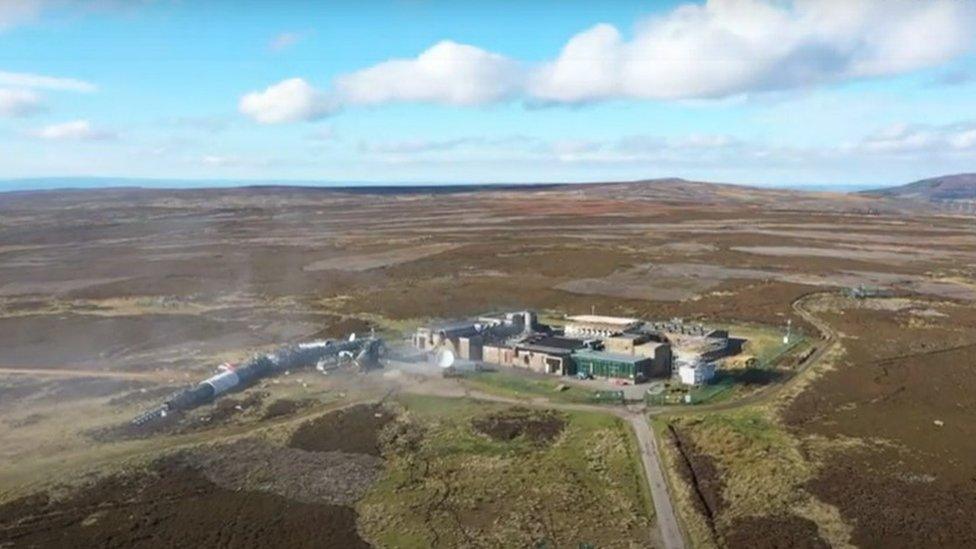
The old Bilsdale mast stood in a remote area of the North York Moors
It said - "broadly speaking" - once it became clear the damage to the mast was severe, Arqiva moved quickly to restore coverage.
However, the report found there were delays in getting temporary transmitters - particularly the one located at the Bilsdale site - up and running because of "site access, planning and technical problems".
Ofcom said some of those issues were because of the mast's location in a National Park and Site of Special Scientific Interest, but better site-specific planning could have pre-empted this.
It added information provided to customers was initially "very general" and as the situation developed there were delays in providing support for affected households, which could have been avoided.
Own reviews
The transmission area covered a large rural area, so for many people, they could not switch to online services because broadband speeds were not fast enough, Ofcom said.
It added broadcasting organisations should carry out their own internal reviews and ensure plans were in place to restore services and keep audiences informed in worst-case scenarios.
Ofcom said it would monitor anything that was introduced before it considered if further regulatory action"was necessary.
Paul Donovan, of Arqiva, welcomed the report and said the company would work with broadcasters to act on Ofcom's recommendations.
He said: "The key recommendations are aligned with the work we have been undertaking since the incident.
"Restoring services has been the main focus for us and since the fire we built an 80m temporary mast in two months, commissioned 15 new relay transmitters, built another, more resilient 80m interim tower, and we are now in the process of constructing a brand new permanent 300m mast using an experienced North Yorkshire-based constructional steel fabrication business.
"We have also already implemented a range of measures to enhance our fire mitigation, fire protection and disaster recovery procedures and capabilities and will continue to review these areas as we work with the broadcasters to implement the recommendations from Ofcom."

Follow BBC North East & Cumbria on Twitter, external, Facebook, external and Instagram, external. Send your story ideas to northeastandcumbria@bbc.co.uk, external.
Related topics
- Published21 May 2022
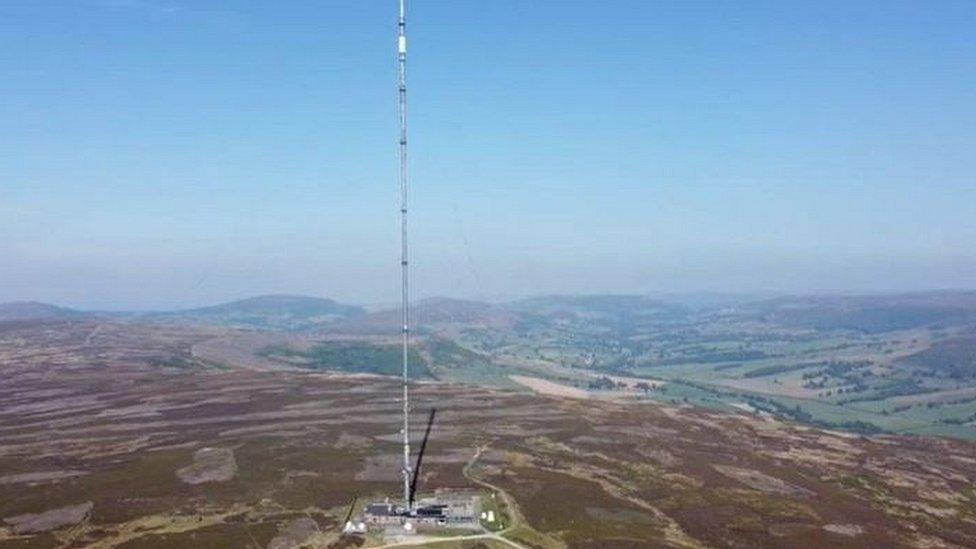
- Published14 May 2022
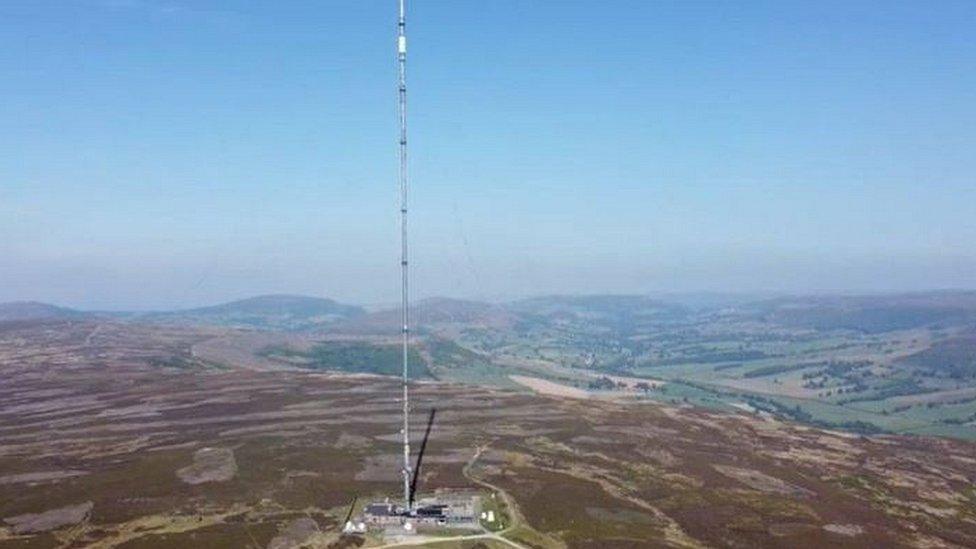
- Published6 October 2021
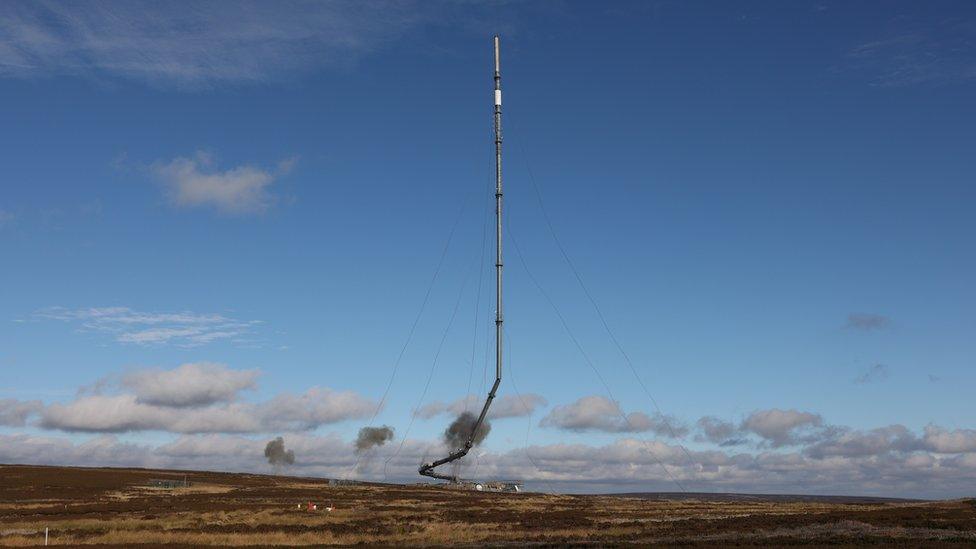
- Published14 September 2021
